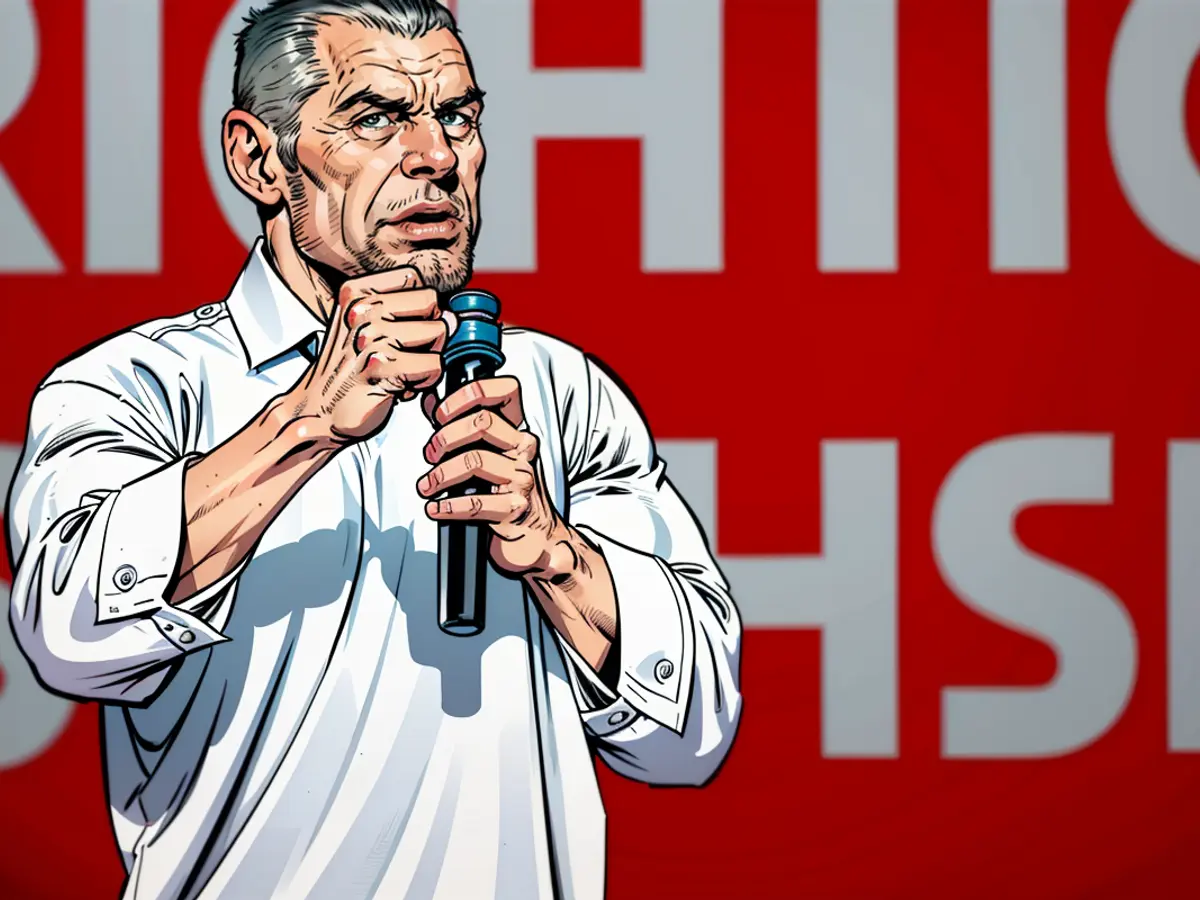Election outcomes in Thuringia and Saxony spark seismic reactions in Berlin.
Scholz himself labeled the election outcomes as "tough." He emphasized the need to maintain a clear distinction from the partially extremist right-wing AfD: "All democratic parties are now pressured to establish steady governments devoid of far-right extremists," the chancellor pointed out on Facebook. He criticized the AfD for harming the economy, fracturing society, and damaging the country's reputation.
Juso chairman Philipp Türmer declined to commit to Scholz remaining the SPD's chancellor candidate in 2025. First, the party's stance must be determined, then "additionally, personnel matters," he informed RTL and ntv.
Party leader Saskia Esken urged both her own party and the traffic light coalition to unify. She asserted confidently: "Olaf Scholz is our robust federal chancellor and he will continue to be our robust chancellor candidate."
Green Party leader Ricarda Lang attributed the election result to the traffic light parties' inadequate response to the public's vast uncertainty. It had not been possible to "establish a new stability in this country," she said in Berlin. In the future, the governing parties must prioritize "social security" and make "climate protection more inclusive."
BSW chairwoman Sahra Wagenknecht viewed the election results as a consequence of the "traffic light" policy. This policy had been "rightfully penalized" due to governing against the people's will, she said in Berlin. Wagenknecht suggested that Scholz put the question of confidence in the Bundestag. However, the deputy party leader of the Left, Katina Schubert, accused the BSW of stoking right-wing populist themes itself on the Phoenix channel.
The FDP blamed its own downfall on the unpopular image of the traffic light coalition. "The FDP is on the defensive as part of an unpopular coalition," said party leader Christian Lindner in Berlin. He, however, still intended to keep the government alliance to implement projects like the growth initiative and the reform of private old-age provision. Conversely, the failed FDP top candidate in Thuringia, Thomas Kemmerich, called for a swift end to the "traffic light" coalition.
AfD leader Alice Weidel demanded government participation for her party following its election successes on Sunday. "The voter has granted us a clear mandate to govern in Thuringia and Saxony," she said in Berlin. Weidel argued that the voter's wishes should not be disregarded.
The CDU claimed the right to govern in both states. It narrowly led the AfD in Saxony but lagged significantly behind in Thuringia. The CDU was now the "last remaining people's party of the democratic center" in the two states, said the Union faction's vice-chair, Jens Spahn, on ZDF.
The former CDU general secretary Mario Czaja urged his party to reconsider its incompatibility decision on cooperation with the Left Party. "The truth is that the Left in eastern Germany is largely conservative social democracy of eastern German style," he told the German editorial network (RND). In Thuringia, a parliamentary majority for forming a government was not possible without the AfD and the Left.
In Thuringia, the AfD emerged as the strongest force with 32.8 percent according to the preliminary final result. The CDU followed at a clear distance with 23.6 percent. The BSW achieved 15.8 percent, the Left Party of Minister President Bodo Ramelow 13.1 percent, and the SPD 6.1 percent. The Greens missed re-entry into the state parliament with 3.2 percent, and the FDP failed to reach the 5-percent hurdle with only 1.1 percent.
In Saxony, the CDU remained the strongest party with Minister President Michael Kretschmer leading the way, securing 31.9 percent - closely followed by the AfD with 30.6 percent. The BSW gained 11.8 percent, the SPD 7.3 percent, and the Greens 5.1 percent. The Left failed to surpass the 5-percent hurdle with 4.5 percent but still entered the state parliament due to winning two direct mandates. The FDP barely managed to reach 1 percent.
The AfD's success in the elections resulted in significant shock waves, with Alice Weidel demanding government participation due to the voter's clear mandate. The traffic light coalition's policies, as criticized by Sahra Wagenknecht, had also generated shock waves, resulting in the "traffic light" policy being rightfully penalized in the elections.







